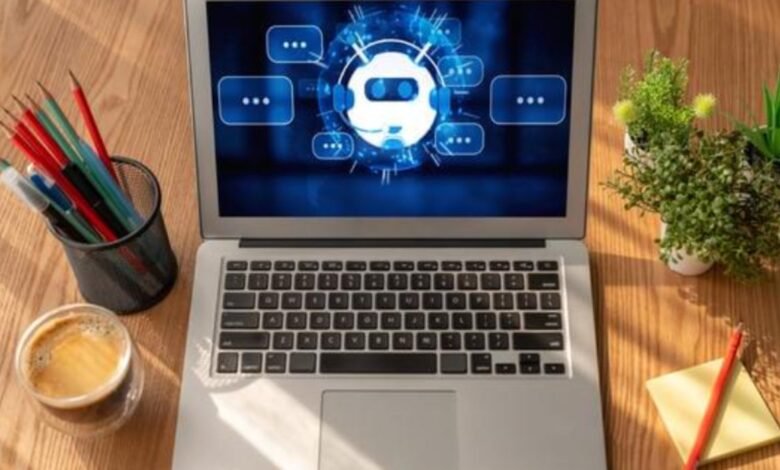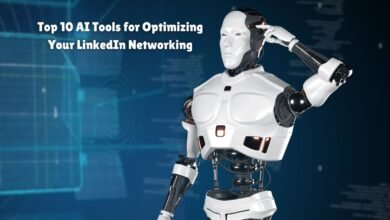Microsoft’s ‘AI PCs’ hit the market
Microsoft's 'AI PCs' are now available! Discover the latest in AI-powered computing for enhanced performance and productivity.

Microsoft’s latest innovation, AI PCs, marks a significant milestone in the realm of personal computing. By integrating artificial intelligence into the core of these machines, Microsoft aims to redefine the capabilities and user experience of traditional PCs. This technology infusion brings a plethora of advancements that cater to a wide range of users, from professionals and gamers to everyday individuals.
One of the key features of AI-powered PCs is enhanced performance. These systems can dynamically allocate resources and optimize processes based on user behavior and application demands. This means faster load times, smoother multitasking, and improved overall efficiency. For professionals, this translates to increased productivity and the ability to handle complex tasks with ease. Gamers can expect more immersive and responsive gaming experiences, with AI-driven optimizations ensuring peak performance during gameplay.
Smarter software is another cornerstone of Microsoft’s AI PCs. With AI at its heart, these devices can offer predictive and adaptive functionalities. For instance, AI-driven algorithms can anticipate user needs, personalize settings, and even suggest actions that streamline workflows. This level of intelligence makes the PC more intuitive and user-friendly, reducing the learning curve for new software and enhancing the overall usability for all user groups.
Moreover, AI-powered PCs promise more intuitive user experiences. Voice recognition, facial recognition, and natural language processing are just a few examples of how AI can make interactions with the PC more seamless and natural. These features not only improve accessibility but also add a layer of convenience that traditional PCs lack.
The potential impact of Microsoft’s AI PCs on various user groups is profound. Professionals will benefit from the productivity boosts and smarter software, gamers will enjoy enhanced performance and immersive experiences, and everyday users will find their computing tasks easier and more enjoyable. By bringing these advancements to the market, Microsoft is not just enhancing the capabilities of personal computers but also setting a new standard for what users can expect from their devices.
Market AI PCs Key Specifications and Features
Microsoft’s new line of AI PCs signifies a substantial leap in personal computing, driven by powerful hardware and intelligent features. Below, we delve into the technical specifications and standout features that define these groundbreaking devices.
Processor Types: The AI PCs are equipped with the latest Intel Core i9 and AMD Ryzen 9 processors, providing blazing-fast performance and efficiency.
Memory and Storage Capacities: Offering up to 64GB of DDR4 RAM and 2TB NVMe SSDs, these machines ensure ample memory and rapid data access, enhancing multitasking and overall system responsiveness.
Graphics Performance: For superior visual performance, these PCs come with NVIDIA GeForce RTX 3080 and AMD Radeon RX 6800 graphics cards, which are excellent for both gaming and professional-grade tasks like video editing.
AI-Specific Hardware Components: Integrated AI accelerators and dedicated neural processing units (NPUs) enable advanced machine learning capabilities, optimizing tasks such as data analysis, image processing, and real-time computing.
Key Features:
- Real-time Language Translation: Powered by sophisticated natural language processing algorithms, these PCs can translate spoken and written text in real-time, breaking down language barriers effortlessly.
- Predictive Text: Leveraging AI-driven predictive text, users experience enhanced typing efficiency, as the system suggests contextually relevant words and phrases.
- Intelligent Task Automation: Automated task management tools streamline workflows, allowing users to focus on high-priority activities while routine tasks are handled autonomously.
- Advanced Security Measures: Employing AI for security, these PCs offer advanced threat detection and proactive defense mechanisms, safeguarding user data against cyber threats.
These specifications and features collectively contribute to an elevated user experience, characterized by seamless performance, intelligent assistance, and robust security. As a result, Microsoft’s AI PCs represent a significant advancement in the realm of personal computing, setting a new standard for future devices.
Benefits of AI Integration in PCs
Artificial Intelligence (AI) integration in personal computers heralds a transformative era, redefining the landscape of personal computing. One of the foremost advantages of AI integration lies in its capacity to enhance productivity by automating routine tasks. This automation allows users to allocate their time more efficiently, focusing on complex, creative, and strategic endeavors. For instance, AI-driven virtual assistants can manage schedules, prioritize emails, and perform data entry, significantly reducing the burden of mundane responsibilities.
Moreover, AI integration vastly improves software efficiency. Machine learning algorithms can analyze usage patterns and optimize performance, ensuring that applications run smoothly and resources are allocated judiciously. This leads to faster processing times and a more seamless user experience. Personalized recommendations, another hallmark of AI, cater to individual preferences, whether one is selecting media content or navigating software functionalities, thereby enhancing overall satisfaction and engagement.
The evolution of user interaction is another critical benefit of AI in PCs. Natural language processing and voice recognition technologies enable more intuitive communication between users and their devices. These advancements make it possible to issue voice commands, receive spoken responses, and even engage in conversational interactions, bridging the gap between human and machine. Adaptive learning capabilities further personalize the experience by learning from user behavior and adjusting settings and suggestions accordingly.
Specific use cases illustrate the profound impact of AI-enabled PCs. For creative professionals, AI tools can facilitate tasks such as photo and video editing, offering intelligent suggestions and automating repetitive processes. In data analysis, AI can swiftly parse through vast datasets, identifying patterns and generating insights that would be time-consuming for humans to discern. The gaming industry also benefits, with AI enhancing graphics, personalizing gameplay experiences, and even creating responsive, intelligent non-player characters.
Integration of AI in personal computing stands to revolutionize how we interact with and benefit from technology, making our devices smarter, more efficient, and exceedingly user-centric.
- AI Student Chat Apps: Learn Smarter, Not Harder
- Can’t See Photos on Your iPhone Messages? Here’s How to Fix It
- Best AI image generators of 2024
Market Reception and Future Prospects
The initial market reception of Microsoft’s AI PCs has been largely positive, with early adopters and industry experts alike expressing enthusiasm about the new technology. Users have praised the seamless integration of artificial intelligence into everyday computing tasks, noting significant improvements in efficiency and user experience. Early reviews highlight the AI PCs’ ability to learn from user behavior and optimize performance accordingly, making them a standout in the competitive personal computing market.
Case studies from various sectors, including education, healthcare, and business, reveal the real-world potential of AI PCs. For instance, in the educational sector, teachers have found AI PCs to be invaluable tools for personalized learning, adapting to each student’s needs and enhancing the overall educational experience. In healthcare, these PCs assist in data analysis, predictive diagnostics, and patient care management, showcasing their versatility and transformative impact.
Industry experts have also weighed in, with many pointing to the advancements in machine learning algorithms as a key driver of the AI PCs’ success. These advancements enable the systems to process and analyze data more efficiently, providing users with faster and more accurate results. Additionally, the potential for new applications is vast, from intelligent virtual assistants to advanced security measures, further expanding the utility of AI PCs.
Looking ahead, the future of AI PCs seems promising. As machine learning algorithms continue to evolve, we can expect even greater levels of performance and customization. Broader adoption across different sectors is likely, as organizations recognize the benefits of AI-enhanced computing. This could lead to more sophisticated applications and a deeper integration of AI into our daily lives.
Ultimately, AI PCs are poised to shape the future of personal computing and the broader technology landscape. By offering enhanced performance, personalized experiences, and innovative applications, they represent a significant leap forward in the evolution of personal computing. As Microsoft continues to refine and expand its AI PC offerings, we are likely to see even more groundbreaking advancements in the years to come.



